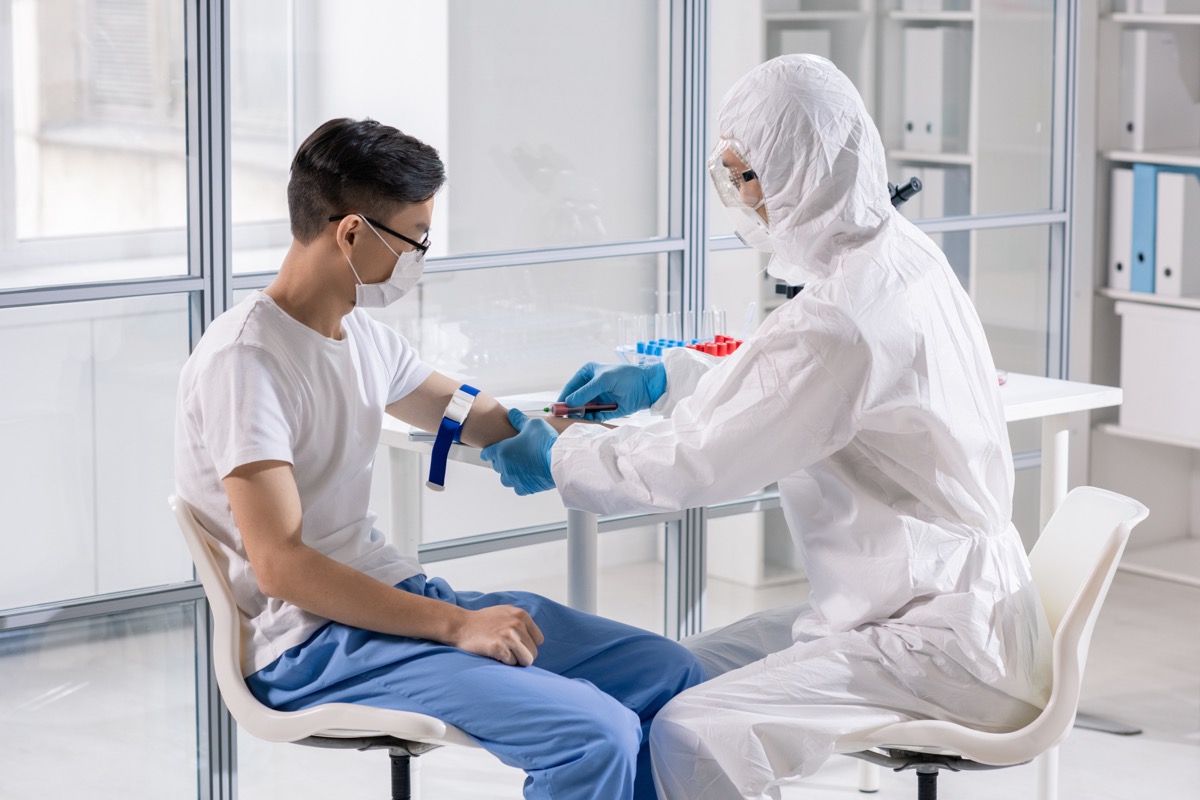Yes, there are two types of coronavirus testing: viral tests and antibody tests. However, they are not the same. A viral test tells you if you currently have the coronavirus, and an antibody test tells you if you had the coronavirus previously, the Centers for Disease Control and Prevention (CDC) explains. A typical viral test is administered through a nasal swab, while an antibody test requires blood to be drawn. But can you just take the antibody test to see if you are currently infected? According to the CDC, no.ae0fcc31ae342fd3a1346ebb1f342fcb “An antibody test may not be able to show if you have a current infection, because it can take one to three weeks after infection to make antibodies,” the CDC says. And even if your antibody test shows that you do have antibodies, you may still need to take a viral test in the future if you start presenting COVID-19 symptoms or have been in close contact with someone who has tested positive for COVID-19, as the CDC doesn’t yet “know if having antibodies to the virus can protect someone from getting infected with the virus again, or how long that protection might last.” For what it’s worth, physician scientist William Li, MD, author of Eat To Beat Disease, previously told Best Life that those with antibodies are more likely to be able to fight off the coronavirus than those without, so he recommends everyone get an antibody test to know where they stand. “Antibodies are naturally formed in the body after a virus infection, because the immune systems learns to recognize the virus,” he said. This means that if a person is seen to have antibodies, “that’s a good sign they are likely to be resistant to re-infection.” As for viral testing, there was a period of time when testing supplies were limited and reserved for those presenting severe symptoms or in high-risk categories. However, as more testing has become available, many areas are now offering tests for anyone, whether they have symptoms or not. That having been said, keep in mind that a viral coronavirus test may come back negative even if you have the coronavirus for a number of reasons, including testing too early within your infection period. RELATED: For more up-to-date information, sign up for our daily newsletter. Both viral and antibody tests have their limitations, and neither test can tell you with 100 percent certainty that you don’t have the coronavirus or won’t get it in the future. That’s why maintaining social distance, wearing a face mask, and taking more preventative measures is extremely important until a coronavirus vaccine is available. “We are certain that there are people who test negative even though they are definitely contagious. A positive test can make us relatively certain that you are shedding COVID. But a negative test does not mean the opposite,” Emily Landon, MD, a hospital epidemiologist and infectious diseases specialist at University of Chicago Medicine, told NPR. And for more on coronavirus testing, This Is Exactly When You Should Get Tested for Coronavirus.
